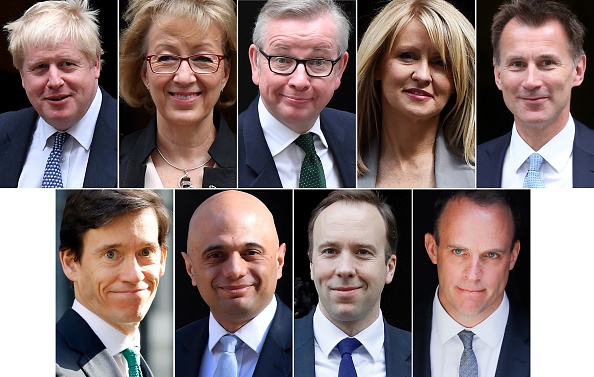Brexit dogma is a one-way ticket to extinction for London’s Tories

As 11 candidates prepare to enter the race to succeed Theresa May as Conservative party leader and Prime Minister, London Tories have their own identity crisis to worry about.
They just chalked up a new electoral record: 7.8 per cent of the vote, fifth place citywide, and zero MEPs returned to the European parliament. Ex-Tory voters flocked to Remain and Brexit options, or stayed home.
This near-extinction event was a long time coming. And there have been warning signs. From a historically weak 35 per cent vote share and 27 seats in the 2015 General Election, through a 33 per cent score and loss of six seats in 2017, to a 29 per cent share and 101 council seat net loss in 2018, London Conservatives have been on a downward trajectory.
The mayoral elections tell the same story – from winning 44 per cent in 2012, to 35 per cent in 2016, to polling at just 23 per cent for 2020’s race in the latest survey.
The Tories’ 15-point slump since the last European elections broke all electoral records. The Liberal Democrats, Labour, the Brexit Party, and the Greens all outpolled the Conservatives.
Localised strength, enabling them to win the popular vote in seven of 33 local authorities in 2018, vanished last month. They came sixth in eight boroughs, below even Change UK, which polled at just five per cent citywide.
If you look at the breakdown of results, the trend is clear. The three pro-Remain parties – the Lib Dems, Greens, and Change UK – earned 45 per cent of the vote compared to 20 per cent for the no-deal duo of the Brexit Party and Ukip. The pro-EU three topped the poll in 28 of 33 local authority areas.
These results reflect how, three years since 2016’s referendum, the capital has moved from a 60 per cent Remain vote to 71 per cent in the most recent poll. And that presents Tories in the capital with a serious problem.
These forces mean that, in next June’s mayoral election, Tory unpopularity could see the party fail to make the run-off between the top two candidates, for the first time ever.
The Conservatives might even come fourth, after Labour’s Sadiq Khan, the Lib Dems, and the Brexit Party candidate, igniting yet another bout of infighting and leadership speculation.
In an increasingly pro-Remain London, the party isn’t helping itself. Turning away from a historic penchant for pragmatism (running as moderates on a platform of municipal reform for the old London County Council; creating then capturing the former Greater London Council in the late 1960s and late 1970s), all three of the Tories’ aspirant mayoral candidates were Brexiteers.
Ideological inflexibility is unsurprising in a party in which pollster research finds six in 10 Tory members voted for the Brexit Party last month, but doesn’t help in a city where ex-Tory strongholds back Remain.
Could the future for London Tories be that of their US Republican counterparts in New York City, where the quality of candidates reflects their dismal chances? Certainly, the Tory candidate lacks the intellectual rigour and governing nous of Steve Norris, or the celebrity stardust of Boris Johnson.
If London Tories really want a shot at City Hall, they might look to Ruth Davidson’s Scottish Conservatives, who narrowly won one of only four Tory MEP seats nationwide in pro-Remain territory, or leadership hopefuls like pro-referendum Sam Gyimah and pro-deal Rory Stewart.
Yet another crushing defeat in next June’s mayoral election may force the Tories to rediscover their preference for power. A fresh, distinct London identity, allowing all candidates to pledge support for electorally-friendly positions – opposing no-deal and backing a new referendum – might help them recover.
If not, continuing to stubbornly set their face against the capital’s pro-EU sentiment is a one-way ticket to Tory electoral extinction.